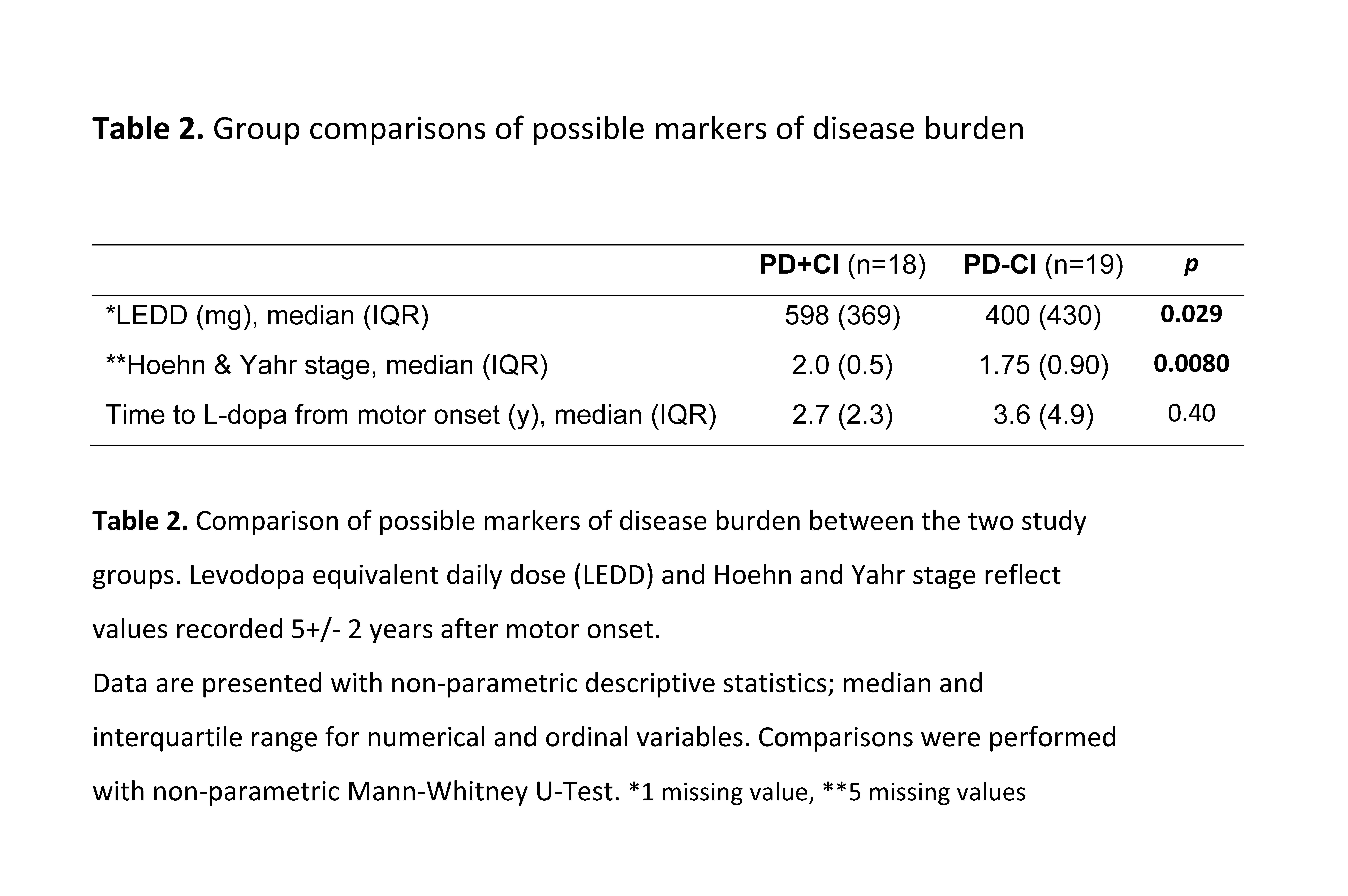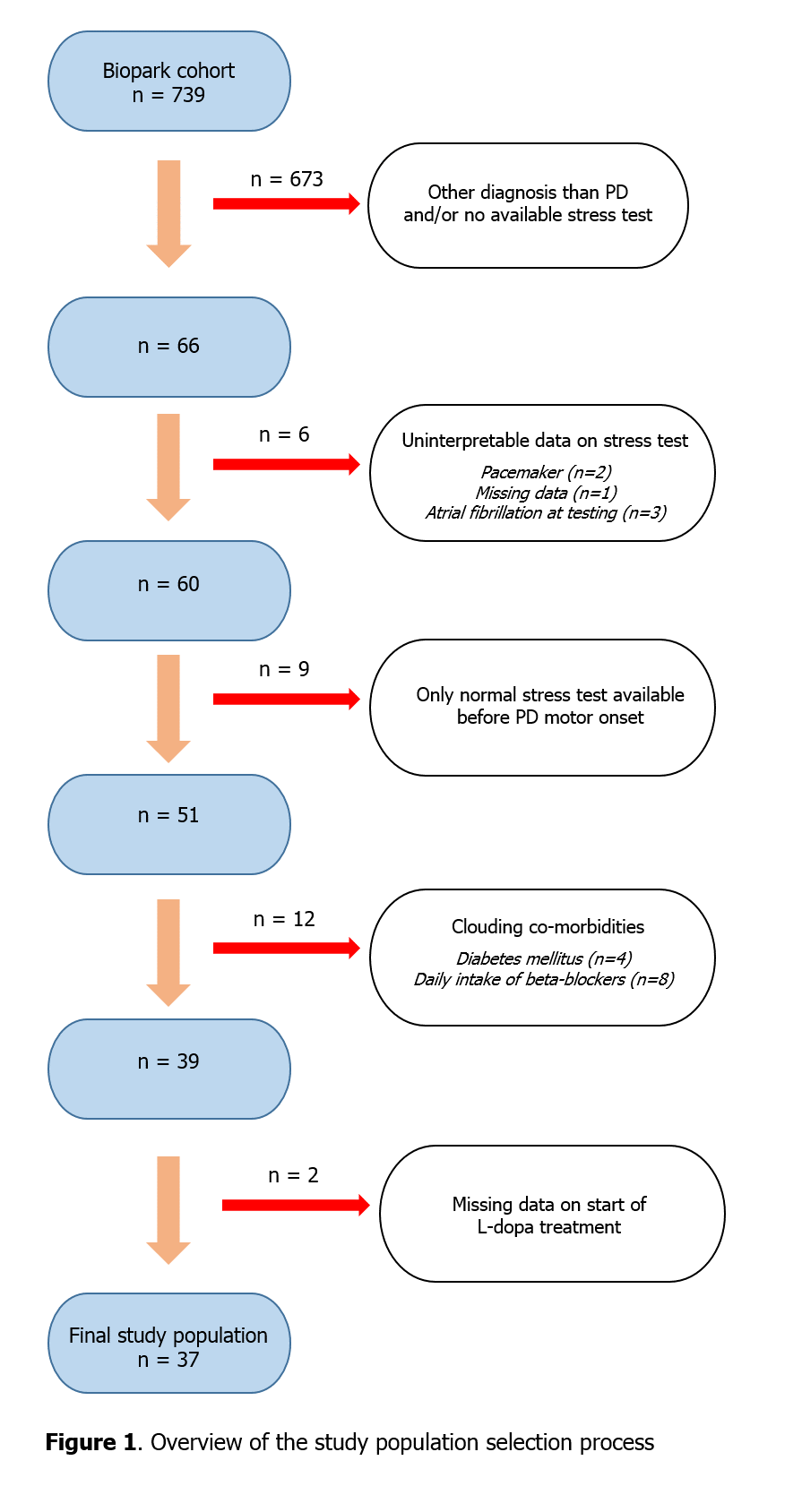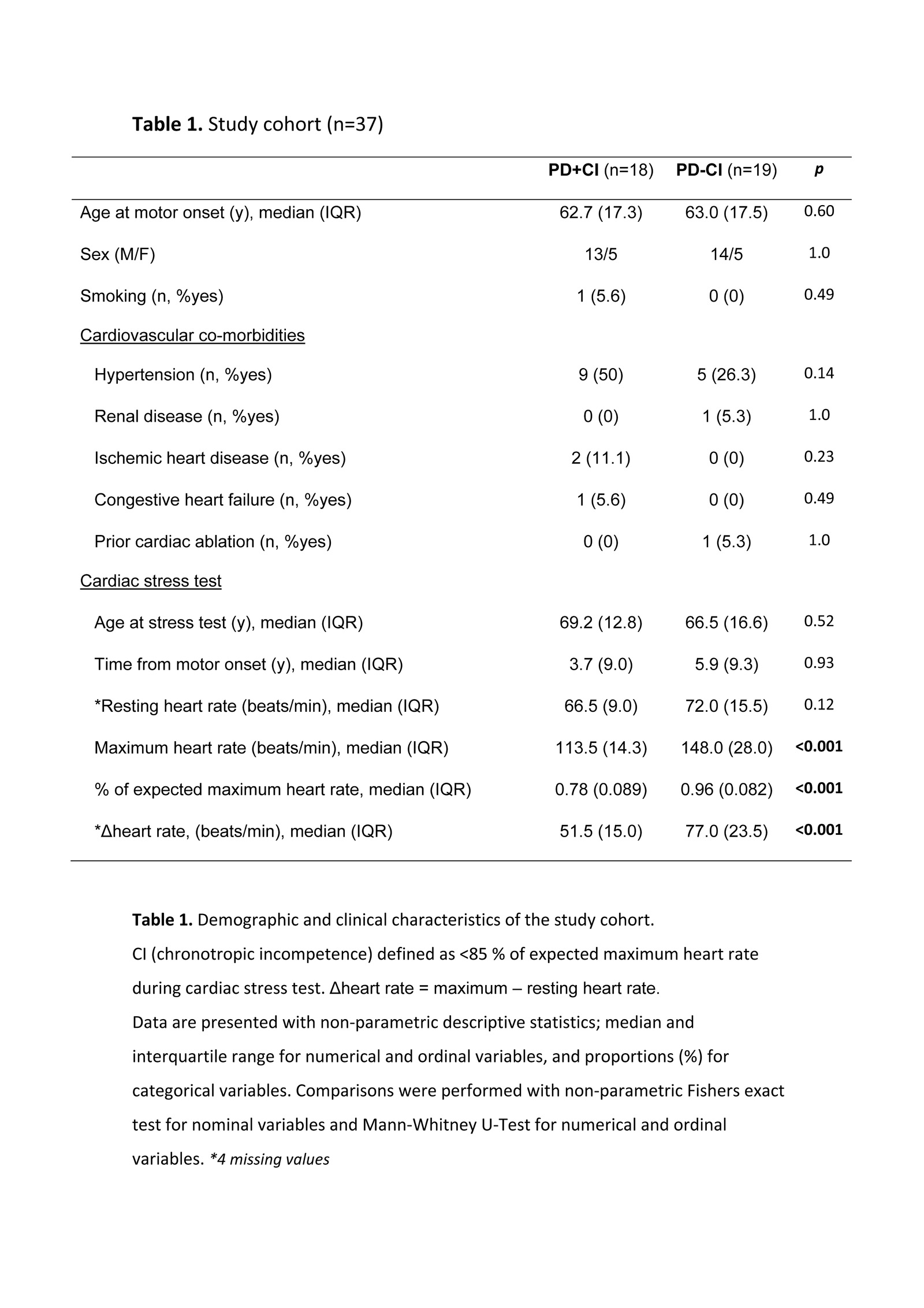Objective: Perform a retrospective analysis of patients with Parkinson’s disease (PD) who previously have undergone a cardiac stress test, with the aim of comparing clinical features stratified by the presence of chronotropic incompetence (CI).
Background: Chronotropic incompetence reflects the inability to adequately increase heart rate in response to physical exercise. This response is suggested to be partly dependent on intact postganglionic sympathetic cardiac innervation, and has been proposed to be defined by the inability to achieve >85 % of age-expected maximum heart rate during a cardiac stress test [1]. Postganglionic sympathetic cardiac denervation has repeatedly been demonstrated in PD through neuroimaging [2] and neuropathological studies [3].
Method: Using data from the Biopark study (n=739), an ongoing prospective observational cohort study, patients with PD and an available record of a previous cardiac stress test were reviewed. CI was defined as: (maximum heart rate) / (220 – age) < 0.85. A selection process was carried out to exclude relevant clouding factors (Figure 1). Stress tests without evidence of CI, performed before the onset of motor symptoms, were excluded.
[figure1]
Available clinical and demographic data were recorded.
Results: A study population of 37 patients, stratified by the presence of CI, was available for further analysis.
[table1]
Patients with and without CI were comparable with regard to sex, age at motor onset and age at time of cardiac stress test.
The recorded levodopa equivalent daily dose and Hoehn & Yahr stage 5 +/- 2 years after motor onset was significantly higher in the PD group with CI (p = 0.029 and p = 0.0080).
[table2]
Analyzing the whole study population, a significant association was demonstrated between the achieved maximum heart rate (expressed as % of age-expected value) and Hoehn & Yahr stage 5 +/- 2 years after motor onset (Spearman’s rho = -0.49, p = 0.0042).
Conclusion: The presence of CI may be associated with a more severe disease phenotype in PD. We speculate on whether CI may be a clinical marker of postganglionic cardiac denervation associated with peripheral PD pathology, akin to the proposed “body-first” PD subtype associated with REM sleep behavior disorder [4].
Given the retrospective nature and limited clinical outcome data of this study, prospective studies combining cardiac neuroimaging and stress test in both the prodromal and motor phase of PD are warranted.
References: [1] Dresing TJ, Blackstone EH, Pashkow FJ, et al. Usefulness of impaired chronotropic response to exercise as a predictor of mortality, independent of the severity of coronary artery disease. Am J Cardiol 2000;86(6):602-609.
[2] Goldstein DS, Holmes C, Li ST, et al. Cardiac sympathetic denervation in Parkinson disease. Ann Intern Med 2000;133(5):338-347.
[3] Amino T, Orimo S, Itoh Y, et al. Profound cardiac sympathetic denervation occurs in Parkinson disease. Brain Pathol 2005;15(1):29-34.
[4] Horsager J, Andersen KB, Knudsen K, et al. Brain-first versus body-first Parkinson’s disease: a multimodal imaging case-control study. Brain 2020;143(10):3077-3088.
To cite this abstract in AMA style:
M. Andréasson, P. Svenningsson. Chronotropic incompetence – a possible marker of severe Parkinson’s disease phenotype? [abstract]. Mov Disord. 2023; 38 (suppl 1). https://www.mdsabstracts.org/abstract/chronotropic-incompetence-a-possible-marker-of-severe-parkinsons-disease-phenotype/. Accessed February 12, 2026.« Back to 2023 International Congress
MDS Abstracts - https://www.mdsabstracts.org/abstract/chronotropic-incompetence-a-possible-marker-of-severe-parkinsons-disease-phenotype/



